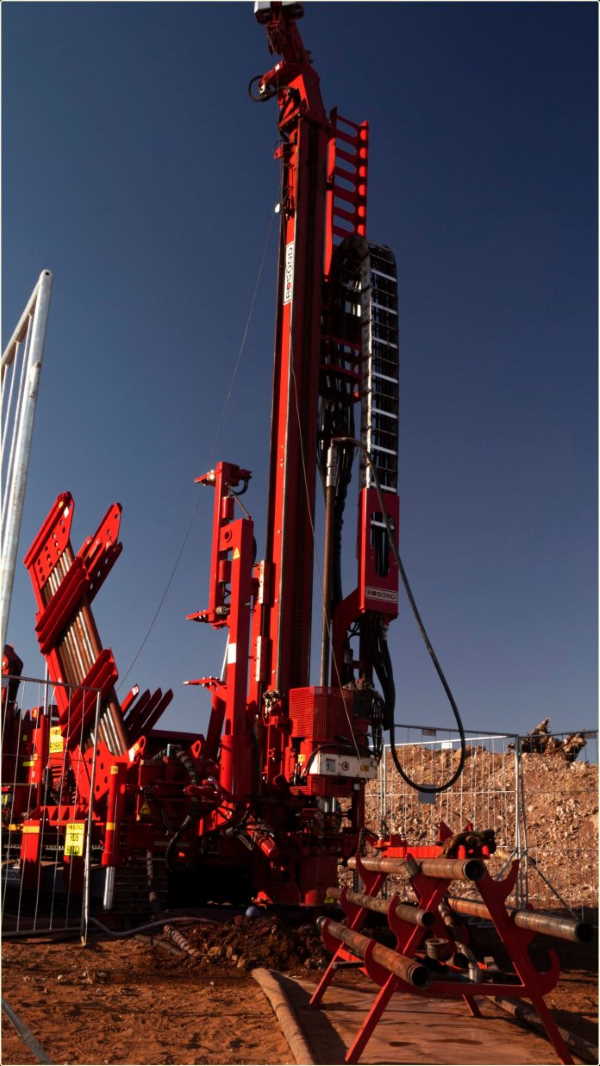Drilling solutions provider Rosond of Midrand has had great success in training an all-female crew deployed at Kumba Iron Ore in the Northern Cape. This particular class was facilitated personally by the Head of Training and Development Carlo Claassens. “The enthusiasm shown by these individuals was brilliant to witness. It certainly is one of the highlights of my career.”
Rosond has supplied its latest-generation drill rigs to the Anglo American operation. “With the advances in technology and considering how much safer these new machines, we will certainly continue to develop many more female employees in the coming months,” reveals Claassens. In terms of the training requirement for any new technology introduced, Rosond carefully drafts operational procedures in conjunction with the manufacturer and tests these in a controlled environment.
The procedures are then refined following input and analysis from various departments. Training manuals and assessments are drafted and approved by the manufacturer before employee training on any new equipment commences. All assessments are drafted to allow for a formative, summative and practical assessment.
Claassens established the training department at Rosond in 2010 after a seven-year stint in the production environment. His primary role is to ensure that employees are trained in all relevant health and safety aspects. This includes all client-related mandatory training as well as operational training pertaining to the fleet of machines to be used on a specific project.
Custom documents are drafted in consultation with the client to ensure its needs are met in terms of what they expect from a training perspective. Each project comes with its own challenges, risks and hazards, and therefore it is best to tailor training for a specific project without jeopardising the quality of the training.
Claassens’ role includes designing and developing training material to be used for new novice employees through to management roles. Rosond currently has four training centres in Postmasburg in the Northern Cape, Rustenburg in the North West, Thabazimbi in Limpopo and Carletonville. Apart from personally facilitating in many of these training centres as well as on projects in Botswana and Mozambique, he oversees a team of ten full-time trainers managing these centres.
Rosond has an extensive network of safety personnel headed up by Safety Manager Andre Kleynhans. “We have enjoyed great benefits in reducing our Lost-Time Injury (LTI) rate by incorporating feedback from the safety department into the training department. We have some projects that are currently running five years with zero harm and are very proud of our safety culture and in keeping our employees safe,” highlights Claassens.
Different types of training are offered, with the most common being health and safety related. This includes basic rigging and slinging, First Aid, firefighting, truck-mounted cranes and (Mining Qualifications Authority) operator skills programmes. Employees can even complete various trades, for example mechanical fitters, boilermakers, coded welders and electricians. Junior managerial positions enjoy management development programmes through accredited institutes.
Rosond assists those employees wishing to achieve their trades from enrolment to completion. It also develops training officers through various skills programmes to ultimately achieve national certification. Safety officers are also developed through Comsoc 1 and Comsoc 2 training. Various programmes cater for employee development to work through the different ranks from novice to manager.
Commenting on the impact of Covid-19, Claassens admits this has been particularly tough on the training department. Training has been carried out ‘hands-on’ for many years, with a preference for candidates to be physically present. In adapting to the pandemic, Rosond has enforced the regulations set out by the government to ensure adequate social distancing and restrictions on class sizes. “We also embraced technology in delivering training through digital platforms such as Microsoft Teams. Video assessments were also introduced for candidates outside South Africa at the time,” concludes Claassens.












